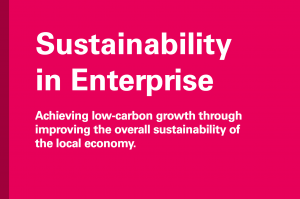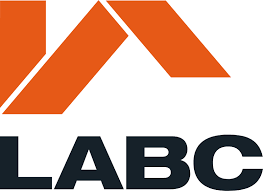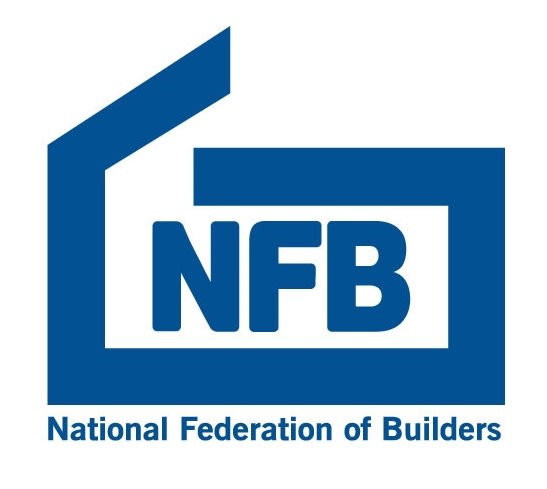
If you missed the CE Midlands Housing Summit or would like to revisit the content you can now access the event on the Leadersmeets website to watch the recording of this online event and to see the slides from speakers presentations by CLICKING HERE
The speaker list is led by Richard Twinn of Cundall (ex UKGBC) updating us on the Future Homes Standards. The Future Homes Standards will affect all those involved in the provision of housing going forward. Richard is an undoubted ‘expert’ in this field and will outline what we will all have to consider going forward.
Simon Inkson of Welsh Government will be speaking about WG’s Affordable Timber Framed Zero Carbon Housing Solution. Welsh Government has decided to build all affordable homes in Wales from 2022 in timber frame as part of their net zero commitment. Simon will outline the exciting plan to achieve this including a partnership arrangement between 11 councils and 14 timber frame manufacturers and the revolutionary procurement process to allow this to take place.
The keynote presentation will be from Colette McCann, Head of Housing Development, Birmingham City Council. CE Midlands has a partnership arrangement to work with Birmingham City Council in helping them achieve their 2040 plan. This includes not only their net zero targets but also housing targets. Colette will outline their exciting plans to deliver the City’s affordable housing needs along with how companies may get involved in the program.
They will be joined by Oliver Novakovic of Barratt Developments who will outline ‘How is a major private developer going to meet the zero carbon challenge? Barratt Developments are always a trend setter in their field and what they do today others follow tomorrow. This will be a very interesting presentation offering best practice opportunities for all.
Sushma Mahraj, Energy Partner of Shakespeare Martineau, speaking about “What are some of the challenges that house builders are facing – and how can they meet these challenges going forward?”
Stewart Delgarno from Stuart Milne Timber Systems will be discussing The Advanced Industrialized Methods for the Construction of Homes (AIMCH)
Richard Whittaker of Citizen Housing and Brian Maunder from Totally Modular. Richard and Brian will take us through a case study of how modular construction allowed Citizen Housing to unlock a difficult garage site in Coventry offering hope for another 400 sites across the region.

There can be no doubt that the engine of CE Midlands is our Theme Groups.
Over the 3 years we have been in existence they have been responsible for delivering extensive collateral for the betterment of the UK construction industry as can be seen HERE
One of the most valuable aspects of membership of CE Midlands is the ability to partake in these working Theme Groups whereby there is a combination of receiving valuable information from expert presentations on the subject matter of the Theme Group as well as working with the group members to produce the collateral identified as necessary to deliver the industry’s improvement agenda.
As a member of CE Midlands we encourage you to join one of our next round of Theme Group Meetings which will be held as below:
- Construction Clients Group (construction clients only) 6th July, 10:00am – 12:00pm
- Procurement & Productivity 6th July, 12:30pm – 2:30pm
- Quality & Compliance 13th July, 10:00am – 12:00pm
- Innovation & Sustainability 13th July, 12:30pm – 2:30pm
- Health & Wellbeing 13th July, 3:00pm – 5:00pm
- Smart Construction (Digital & Offsite) 6th July, 3:00pm – 5:00pm

We are looking forward to some exciting events in the next few months!
We are holding our CE Midlands Housing Summit online this year due to the ambiguity around the ending of Covid restrictions in June. It will take place on the 23rd June and thanks to the generosity of our sponsors, Shakespeare Martineau, we are now able to offer FREE tickets to members.
We have a wonderful line up of speakers from some of the housing industry’s biggest names. The summit’s keynote presentation will be delivered by Colette McCann, Birmingham City Council’s acting assistant director of housing development, who will detail the city’s 2040 plan for affordable housing, as well as introducing how attendees can get themselves involved in the programme.
Now that the Shortlists have been announced, we are very excited about the CE Midlands Awards in September, with the East Midlands Awards Dinner being held on the 2nd Sept and the West Midlands Awards Dinner on the 10th Sept.
Earlybird tickets are available for both Award Ceremony Dinners up until the 30th June, so book early to get the discount!

SHMA hosted a conference last month with the Association of European Energy Consultants last month and generated some great content, both videos and accompanying blogs, so we’ve shared some of the best links here for you.
Energy experts from across Europe discussed the legal, policy and technological issues driving the response to net zero
The Smart Homes of the Future (whatever that means) (shma.co.uk)
Smart home of the future – Martin Valentine | AEEC Conference 2021 – YouTube
What legal and regulatory frameworks are required to decarbonise heat? (shma.co.uk)
Decarbonising heat – panel discussion | AEEC Conference 2021 – YouTube

SUSTAINABLE GROWTH AND CARBON REDUCTION SUPPORT for small and medium-sized enterprises (SMEs) across the Greater Nottingham area
The Sustainability in Enterprise (SiE) project aims to drive sustainable growth and low-carbon growth through improving the overall sustainability of the local economy.
Five strands of support are available to eligible businesses:
Sustainability consultancy: support for site audits, diagnostic reporting and action planning, recommendations for improving sustainability, and advice on development and implementation of the ISO14001 environmental management system.
Sustainable product design: support to achieve greater productivity and innovation, reduce carbon emissions and design out waste.
Carbon reduction workshops and Sustainability grants: knowledge and grants to implement low-carbon and sustainable practices.
Graduate placements (and the Sustainability Community Lab): 20% of the cost of a graduate’s salary for a 12-month period. Graduates can undertake specific projects, act as sustainability champions in the business, and help to improve the knowledge and awareness of sustainability in the local economy.)
The Sustainability Community Lab is designed to equip individuals employed by SMEs with the necessary knowledge and tools to improve sustainable practices and processes within the work environment, nurturing their journey to become to business’ sustainability champion.
To sign up and for more information: Sustainability in Enterprise | Nottingham Trent University.
This support is part-funded by the European Regional Development Fund (ERDF).
Please find here the link to the publication on gov.uk.
The Call for Evidence will be open until the 15th June.
Responses are invited via the online e-consultation platform, Citizen Space.
The Call for Evidence seeks evidence and views from stakeholders on the potential for Biomass to support the UK’s Net Zero target and reflects the need to refresh and extend the 2012 Bioenergy Strategy. Responses received to the Call for Evidence will feed into the Biomass Strategy, which will be published in 2022, as per the Government commitment in the Energy White Paper, published in December 2020.
The aim of the Biomass Strategy is to review the amount of sustainable biomass available to the UK and how this resource could be best utilised across the economy to help achieve our net zero greenhouse gas emissions target by 2050 while also supporting the delivery of our wider environmental targets. The scope of the strategy is wider than energy use and will include other uses such as biochemicals or materials.

The Building a Safer Future (BSF) Charter has launched its ‘Charter Champion’ company initiative to help companies drive the systemic culture change required to put building safety first.
Through robust self-assessment, benchmarking and independent verification, the BSF Charter Champion company initiative will help companies identify potential issues and, in turn, develop continuous improvement plans to advance their overall approach and performance on leadership and culture in relation to building safety. Through their participation in this process companies will be able to identify ways in which they can help to reduce their risk profile in terms of building safety.
The first 12 companies, who are demonstrating real sectoral leadership, have signed up to begin the journey and engage in the robust benchmarking and independent assessment process. The organisations include BAM, Galliford Try, Kier, Mace, mhs homes, Persimmon Homes, Places for People, Salix Homes, United Living, Vistry Group, Wates and Willmott Dixon.
Dame Judith Hackitt’s independent inquiry into building regulations and fire safety clearly identified failure of leadership and culture as key underlying causes of the Grenfell Tower disaster. The ‘Building a Safer Future Charter’ was initiated in response by a group of early adopters including contractors, housing associations and local authorities supported by MHCLG with a vision of having an industry committed to putting people’s safety first.
The BSF Charter has been highlighted by Dame Judith Hackitt and the Industry Safety Steering Group (ISSG) as a key mechanism for leading the culture change required for industry in their report for the Secretary of State and the Minister for Building Safety published in August 2020.
The BSF Charter benchmarking and verification process is now open for participation from across the construction industry. All UK organisations involved in the built environment can proactively participate and demonstrate their commitment to building safety by becoming Registered Signatories to the Charter and, if appropriate, progress to undertaking the ‘Charter Champion’ benchmarking process. This is particularly the case for Duty Holders.
Lord Greenhalgh, Minister for Building Safety said:
“We are taking firm action to ensure that we never repeat the mistakes of the past, with this charter representing a major step forwards in delivering much-needed culture change in the built environment industry.
“I warmly welcome its introduction and commend the twelve organisations already signed up to become ‘Charter Champions’.
“I would strongly encourage more to get involved, especially those who will be playing a key role in the future building safety regulatory regime.”
Peter Baker, Chief Inspector of Buildings at the Health and Safety Executive, said:
“Self-assessment, benchmarking and independent verification are important elements of a robust system to enable businesses to properly lead, manage and control major building safety risks.
“Businesses across the industry need to start preparing now for the new building safety regime. The ‘Charter Champions’ scheme is a valuable contribution to driving the necessary change in culture and performance across the sector to ensure that residents are safe, and feel safe, in their homes.”
Dame Judith Hackitt DBE, Author, Independent Review of Building Regulations and Fire Safety said:
“I am delighted to see the formal launch of the Champions of the Building a Safer Future Charter. My congratulations go to Amanda Long and her team for the way in which they have built upon approaches which have been tried, tested and proved effective in other sectors to create the Charter initiative.
“I have consistently called for the built environment sector to recognise the need for culture change which can only happen when leaders in the sector stand up and are prepared to demonstrate what good looks like and to be held to account for delivery. I look forward to watching the Charter Champions group grow as others see the benefits of becoming part of this important programme which offers a real market differentiation opportunity.”
Andy Mitchell CBE, Co-Chair of the Construction Leadership Council said:
“The Construction Leadership Council welcomes the launch of the Building a Safer Future Charter and its Charter Champions initiative. This is an important step towards an industry that is committed to putting building safety first.
“The promotion of cultural change and leadership in the sector is vital and those that wish to demonstrate real sectoral leadership in relation to building safety should be engaged with the Building a Safer Future Charter.”
Stephen Elliott, Chair, Building a Safer Future Charter said:
“The BSF Charter provides a robust, independent verification process which will drive continuous improvement in leadership and culture in relation to building safety across the industry.
“We have taken learning and insights from tried and tested approaches and responses to major accident hazard safety in other sectors such as aviation and chemicals – both
nationally and internationally – and contextualised these for the UK built environment sector.”
Amanda Long, Chief Executive, Building a Safer Future Charter said:
“In the built environment sector, the Grenfell Tower Disaster has put building safety at the top of everyone’s agenda. From a moral, social and economic perspective it’s now imperative that we embed enduring values, attitudes and ethical behaviours at the heart of all we do.
The launch of the Building a Safer Future Charter’s ‘Charter Champion’ status is an important step in driving forwards the systemic culture change in relation to major hazard safety that is required across the built-environment sector and through the entire value chain. As we progress on this critical journey we should be seeking to raise standards and build public trust.
I am delighted to welcome the first 12 companies on their journey to becoming a Charter Champion.”
The Building a Safer Future Charter is referenced in the publication “A Reformed Building Safety Regulatory System: Government response to the ‘Building a Safer Future’ consultation” published by the Ministry of Housing, Communities & Local Government in April 2020. The publication states that “the Government encourages duty-holders to be signatories and commit to the Building [a Safer Future] Charter” as part of a more rigorous approach to accountability.
For more information about the Building a Safer Future Charter and how to get involved, visit https://buildingasaferfuture.org.uk/charter-champions-benchmarking-about/.

From the 1990s onwards construction has been urged to become more customer focused. The report, ‘Rethinking Construction’ published back in 1998, identified “a focus on the customer as one of the five drivers of change.” The authors of the report saw the customer as the Client or purchaser of a built asset or construction service.
‘Unlocking Specialist Potential’, a report published in the same year questioned the implication that there is only one type of customer – the external customer or commissioning Client. The authors of this report maintained that this did not provide a broad enough view of the participants in a construction supply chain.
They argued another category of customer needed to be recognised – the internal customer. Such internal customer relationships are evident in abundance in construction projects where, for example, the main contractor is the customer of the specialist contractor, and the specialist contractor the customer of the component and/or material manufacturer.
But thirty years on, organisations, particularly in other industries, are recognising that customer focus may not be enough. Providing a good service and consistent quality, supported by surveys measuring customer satisfaction and needs, is increasingly seen as not cutting the mustard.
It is argued that what is needed now is ‘customer intimacy’: A strategy that results in delighted, fully engaged customers and creates a strong differential advantage for suppliers. But building this kind of intimacy with customers is challenging and requires longer-term customer relationships coupled with a fundamental re-alignment of the supplier organisations involved.
So, what are the differences between customer focus and customer intimacy? There are significant challenges in becoming ‘customer intimate’. Here are some of the transitions seen as being necessary to move from customer focus to customer intimacy:
Relationships:
From build strong relationships…to…build deep, multi-level relationships to drive insights
Knowledge of customer:
From understanding customer needs…to…use every point of interaction to systematically gather, analyse and generate data and insights
Customer service:
From transactional building customer satisfaction around T,C and Q…to…to the end-to-end lifecycle experience of customers and exceeding their desired outcomes
Value:
From identify and satisfying stated needs and preferences…to…creating solutions to needs that customers don’t yet know they have
Innovation:
From feedback loops to inform product and service development…to…using insights to reshape end-to-end processes, services and the lifecycle of products.
So, how do organisations go about transitioning from customer focus to customer intimacy? Like any strategy, it is not one to be contemplated or pursued lightly. It requires a further rationalisation of market segments and customers, focused leadership and learning, and further intra- and inter-organisational alignment by suppliers to realise it.
First, looking at customer rationalisation. Customer intimacy requires high levels of investment in developing insights into customers and creating new bespoke value solutions. This requires targeting efforts on specific customers and market segments who are receptive to the idea.
Second, the appropriate value propositions need to be established. Different customers will require specific products and services.
Third, alignment of the organisation and, in turn, key participants in the downstream value chains. Whole organisations, including key suppliers, need to be configured to deliver the intended strategy. This is not just about putting good customer service at the interfaces between organisations where there are direct interactions (although this is important) but ensuring that the rest of the organisation and other organisations in the supply chain deliver on the promise of greater intimacy.
Clearly, these actions are not easy in much of construction given the uniqueness of each building, its production processes, and the transient customer-supplier relationships. The procurement strategies adopted by clients and indeed customers along the supply chain are unhelpful too as supplier selection is often dominated by consideration of price and time rather than quality and value.
On the positive side, a distinct advantage that construction suppliers have over those in many other industries is that Clients and internal customers down the supply chain have the opportunity to build some degree of intimacy, even in the case of one-off projects. And, with the rise in the use of frameworks and other means to build longer-term customer-supplier relationships it is possible for all construction suppliers to aim for some degree of greater customer focus and even customer intimacy.

















